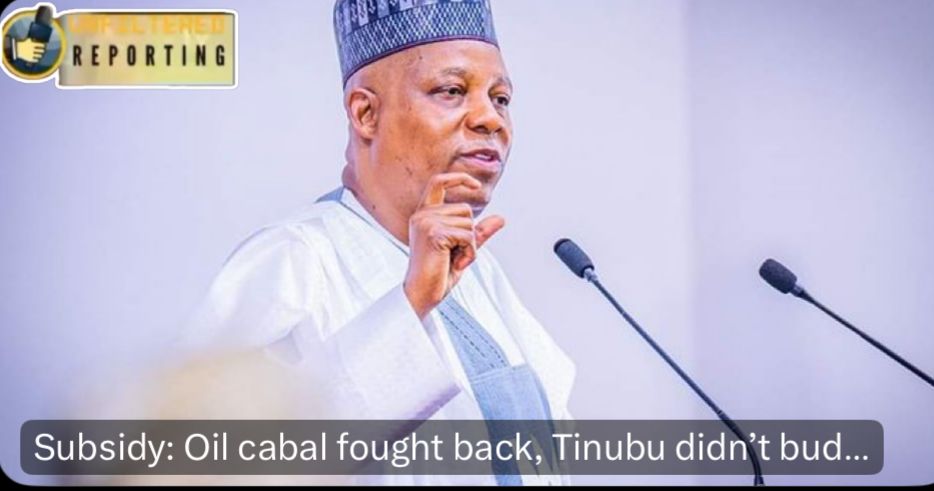Subsidy Removal: Oil Cabal Fought Back But Tinubu Was Resolute, Claims Shettima

Vice President Kashim Shettima has disclosed that President Bola Ahmed Tinubu faced strong resistance from entrenched interests within the oil sector following the removal of fuel subsidy but remained resolute in his decision for the good of the nation.
Shettima made this known on Wednesday while receiving executives of the Nigerian Association of Chambers of Commerce, Industry, Mines and Agriculture (NACCIMA) at the Presidential Villa, Abuja. He said the subsidy removal policy was met with fierce opposition from those who had long benefited from the corrupt subsidy regime but stressed that Tinubu did not yield to pressure. “The oil cabal fought back ferociously, but President Tinubu did not budge,” Shettima said. “He remained resolute because he knew the subsidy regime was unsustainable and corrosive to our national progress.” Shettima said the decision, alongside the unification of the exchange rate, was part of the administration’s plan to rebuild the economy on the foundation of transparency, competitiveness, and sustainable growth. According to him, the government is determined to take tough but necessary steps, even in the face of political consequences, to reposition the country’s economy and attract genuine investment. He noted that President Tinubu’s leadership style is focused on legacy and long-term national development, not political convenience. “We cannot build a nation on false subsidies and fake exchange rates. The path we have chosen may be rough at the start, but it is the only sustainable route to genuine economic transformation,” he said. On his part, NACCIMA President Jani Ibrahim commended the federal government for its economic reforms and called for regular engagement with the private sector to ensure policy alignment. He proposed biannual meetings between the government and organized private sector as well as the inclusion of business leaders in economic decision-making bodies like the Economic Management Team and the National Economic Council. He also emphasized the importance of creating a more business-friendly environment through reforms in taxation, access to finance, and reliable electricity. The meeting underscored the federal government’s commitment to fostering a strong partnership with the private sector as it works to stabilize and grow Nigeria’s economy.









